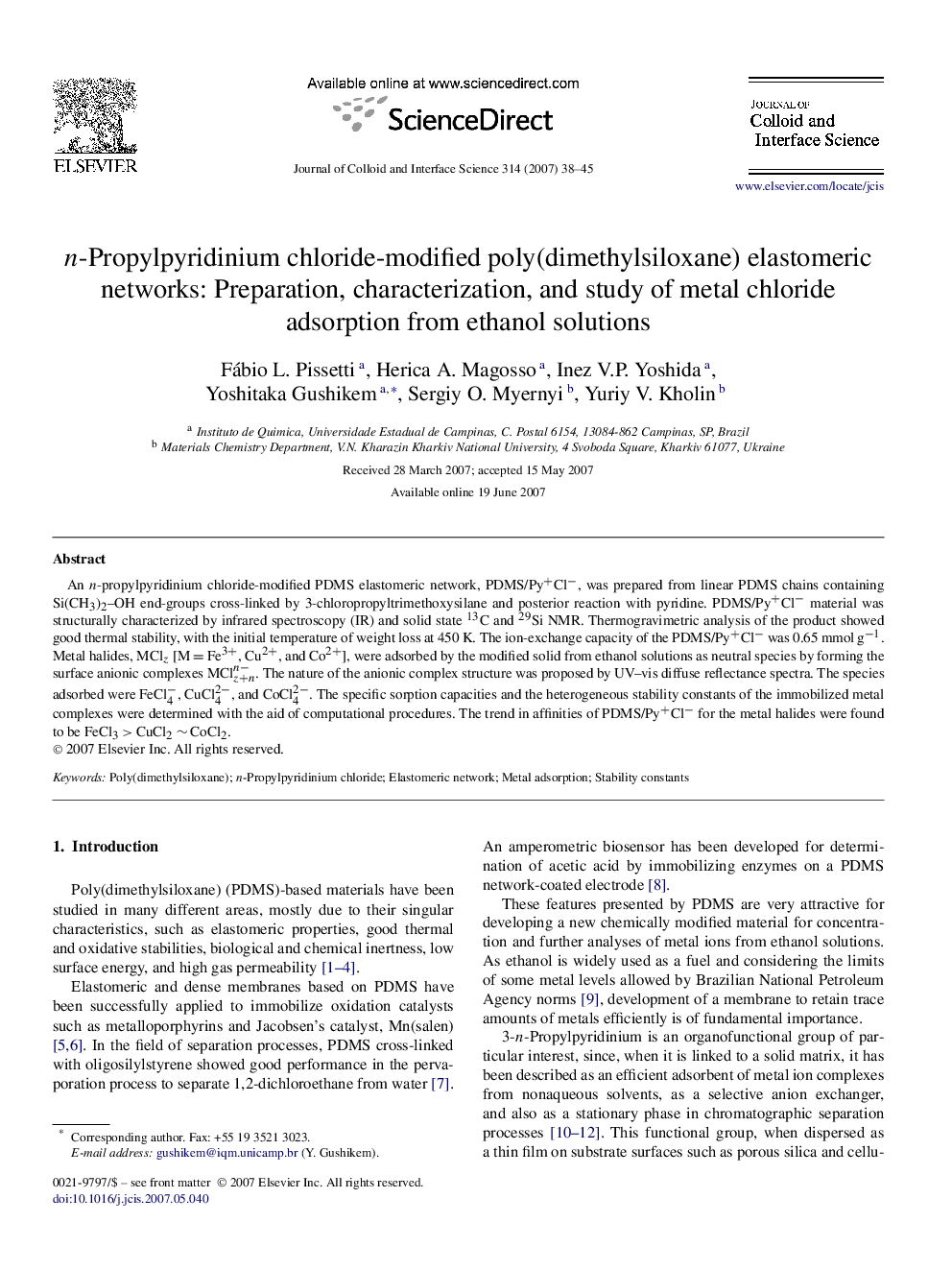| Article ID | Journal | Published Year | Pages | File Type |
|---|---|---|---|---|
| 612210 | Journal of Colloid and Interface Science | 2007 | 8 Pages |
An n-propylpyridinium chloride-modified PDMS elastomeric network, PDMS/Py+Cl−, was prepared from linear PDMS chains containing Si(CH3)2OH end-groups cross-linked by 3-chloropropyltrimethoxysilane and posterior reaction with pyridine. PDMS/Py+Cl− material was structurally characterized by infrared spectroscopy (IR) and solid state 13C and 29Si NMR. Thermogravimetric analysis of the product showed good thermal stability, with the initial temperature of weight loss at 450 K. The ion-exchange capacity of the PDMS/Py+Cl− was 0.65 mmol g−1. Metal halides, MClzMClz [M = Fe3+, Cu2+, and Co2+], were adsorbed by the modified solid from ethanol solutions as neutral species by forming the surface anionic complexes MClz+nn−. The nature of the anionic complex structure was proposed by UV–vis diffuse reflectance spectra. The species adsorbed were FeCl−4, CuCl2−4, and CoCl2−4. The specific sorption capacities and the heterogeneous stability constants of the immobilized metal complexes were determined with the aid of computational procedures. The trend in affinities of PDMS/Py+Cl− for the metal halides were found to be FeCl3 > CuCl2 ∼ CoCl2.
Graphical abstractAn n-propylpyridinium chloride-modified PDMS elastomeric network was prepared by reacting 3-chloropropyltrimethoxysilane and poly(dimethylsiloxane), followed by addition of pyridine.Figure optionsDownload full-size imageDownload as PowerPoint slide
